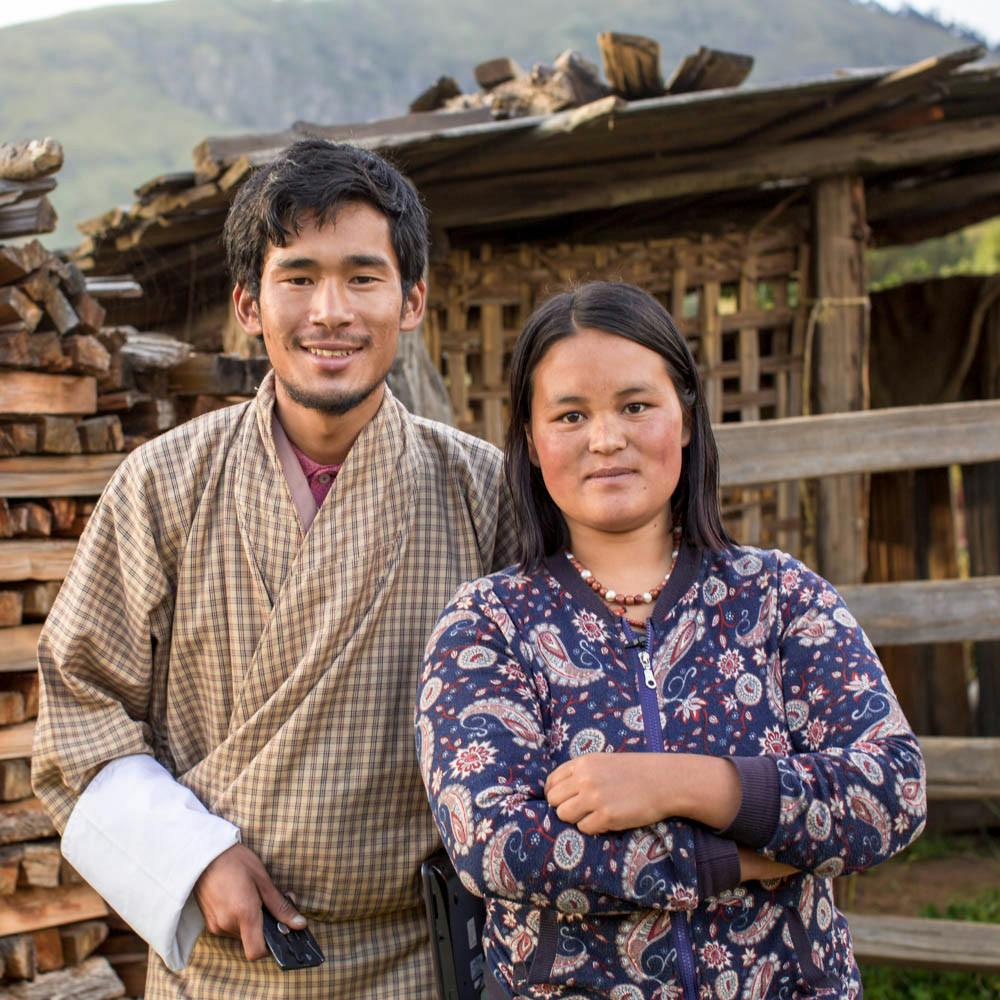This summer, Sherab Dorji ’20 traveled as a Social Innovation Fellow back to his home in Phobjikha Valley, Bhutan. He went to pursue his dream of making a self-sustaining economic contribution to his community by establishing a dairy cooperative, Khemdro Kuenphen Dairy Group, which he hopes will begin operations in April 2018.
Social Innovation Fellows are selected to build a social venture over a 10-week period during the summer. “The majority of students in the Social Innovation Fellowship are working on projects from their own community or their own lived experience,” said Alan Harlam, director of innovation and social entrepreneurship at the Swearer Center. The fellowship offers students $4,000 in “personal and programmatic support” for their projects, according to a brochure for the program.
This fellowship “opened my window to the world of entrepreneurship and, specifically, social entrepreneurship,” Dorji said.
But Dorji has expanded his entrepreneurship far beyond one summer. He is currently taking a gap year and living in Bhutan to dedicate himself completely to the co-op. Thirty-one out of approximately 370 farming families initially joined the co-op, and this number has grown to 41 households since June.
Dorji has considered how to collaborate with farmers in his community since high school, he said. It was with the intention of discovering how to best accomplish this that Dorji applied to Brown. He said he is motivated to turn his education into “a good investment or a good fortune on the part of my community.”
Dorji developed the specific idea of forming a co-op with his friends at Brown. As first-years, Dorji, Zuriel Mbonde ’19 and Brandon Chia ’18.5 were all especially interested in economics as a force for social change. The three friends came together to discuss initiatives that would contribute to the economies of their homes as well as developing countries and sought out Harlam for advice.
“We wanted to know how to go about (finding a solution) in (an) equitable way, in a way that would not just be us, from the outside, telling the Bhutanese people what to do, but more understanding the problem, so that we can create a solution that would most effectively help the people,” Mbonde said.
Dorji’s background has prepared him for this work, he said. “My father was a farmer, before he passed away; my mother is still a farmer,” Dorji said.
“The problem with farming in Phobjikha is that dairy is relegated as the second economic activity after potato cultivation,” Dorji explained, adding that potato farming accounts for more than 95 percent of the average household’s annual income. But since potatoes are a single-harvest crop, they only provide farmers with income once a year. And because potato farmers in Bhutan act as a “secondary supplier” for India, potato prices are vulnerable to the whims of the Indian market, Dorji said.
“So, in the end, if markets are poor in India, then our farmers lose. If harvests are really poor for the year, our farmers lose. If the prices are low, then our farmers lose,” he added.
“As a supplement,” most potato farmers keep anywhere between three and 20 cattle, Dorji said. Half of the cheese and butter produced from the cattle’s milk is consumed at home, while the other half is eventually sold in urban markets. But to reach those markets, farmers are forced to rely on middlemen, who are usually other potato farmers. Currently, these middlemen cut into farmers’ potential earnings with a profit margin as large as 60 percent, according to a document about the co-op.
The co-op would guarantee farmers a fair price for their product by circumventing the middlemen, potentially increasing the current profitability of dairy for farmers by as much as 200 percent, according to the document. Over time, dairy farming might even become economically viable enough to act as an alternative to potato farming. The co-op will offer “group grants and low-interest credit schemes, as well as annual profit-sharing models” to incentivize dairy farming, according to the document.
Dorji said he does not believe the middlemen, who currently profit off of dairy farming, will push back against the co-op, as they understand that it will benefit the community by expanding the dairy industry.
The co-op offers the community other benefits as well. Because dairy products are sold at least once a week, the co-op could provide families in Phobjikha with a steadier source of income. Consolidating butter and cheese production in a single processing unit allows all participating households to access resources no single farmer would have and is more economically efficient.
The project may give women more power over money as well. Potato farming is a male-dominated financial venture; though women labor in the field alongside men, the flow of money is mainly controlled by men, Dorji said. But women control the profits of dairy farming, so support for the dairy industry also provides support for women in Bhutan.
The Bhutanese government has been supportive of Khemdro Kuenphen Dairy Group, already providing a $21,000 grant for the construction of a central milk processing unit. “The local government is supporting us, not only in words, but in action,” Dorji said.
In January 2018, Dorji will launch an Indiegogo crowdfunding campaign, which he hopes will raise an additional $50,000 dollars to fund a system of cold storage, a backup power supply and two additional utility vehicles for the collection of milk and the transportation of the dairy products to the markets.
In the next five to 10 years, Dorji hopes to “reach all the households in Phobjikha,” he said. “In the next 10 to 20 years, I want to spread this model from Phobjikha to other parts of Bhutan.”





